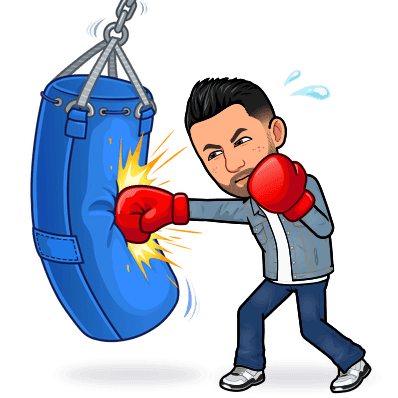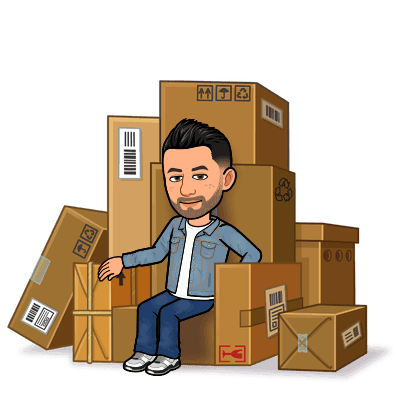Game of Thrones, but better
Stop calling it PLG if you're not building Revenue
The hard truth about Product-Led Growth
I've spent years building product teams, launching features, and crafting growth strategies. I've seen beautiful roadmaps: polished, aligned, and celebrated. That ended up delivering nothing. I've watched teams execute flawlessly, following every best practice in the book, yet still fail to move the business forward. It made me realize something brutal.
Execution is NOT enough if you’re building the wrong things.
But I've also seen the opposite: scrappy teams with sharp instincts, no budget, and a strong product-led mindset grow like wildfire, because they knew what really mattered. They didn't just ship. They landed. They didn't just talk product. They talked profit. They didn’t wait for permission from Sales or Marketing. They built products that were the go-to-market.
That’s when it clicked for me. Product-Led Growth (PLG) isn’t a buzzword. Not a tactic. Not a pricing model.
It’s a mindset shift and when done right, it changes how you build, how you launch, and how your company grows.
And it's not about removing Sales people. It's not about being free. It's not about self-serve everything.
It's about being undeniable.
What's broken?
99% of PLG experiments burn time, talent, and cash. And deliver zero revenue.
I've seen it too many times:
Product teams running onboarding A/B tests with no link to revenue
Growth teams optimizing signups without fixing activation
Engineering burning sprints to ship "growth features" that don't move the business
Exec dashboards full of engagement metrics — while revenue stays flat
Here's the hard truth: you don't have a PLG strategy if you can't tie experiments to revenue outcomes.
PLG has been overused, misunderstood, and sugarcoated. It's been reduced to signup forms with better copy, free trials that convert nobody, and onboarding carousels that users skip without seeing value.
I'm done watching teams fall into the same expensive traps.
Quick disclaimer, stop reading this if - TO MERGE
You are proud to be a feature factory
You want to keep product and business in separate silos
You are here for frameworks without accountability
You think PLG means slapping a free trial on your existing product
You think PLG success means signup spikes with flat revenue
But.
If you are ready to stop building features that don't land...
If you are done being user-centric with no business impact...
If you're tired of dashboards full of vanity metrics while revenue stays flat...
If you're done burning marketing budget on users who never activate...
If you believe your product should drive revenue, retention, and real results, not just serve.
Then you are exactly where you need to be.
What you think you have vs. What you actually have
You think you have PLG. Here's what you actually have. A leaky funnel with a "growth engine" label slapped on top. Signup celebrations followed by activation disasters. Engineering sprints burned on features that move zero business metrics. Sales cursing your lead quality while Product celebrates launch announcements. Dashboards full of vanity metrics with zero actionable insights to fix what's broken.
Let's set the record straight. You don't have a PLG strategy if:
Your CTA update takes weeks to ship
You can't run 3 experiments without a backlog battle
Your product drives usage but not revenue
You obsess over signup volume but ignore activation drop-off
Sales treats PLG leads like damaged goods
You think "frictionless" means "free"
What you have is expensive product development with a growth label slapped on top.
Core Principles aka the Hard Truths
Let's cut the nonsense. Here's what PLG actually means:
PLG is a revenue strategy, not a product strategy.
If Product "owns" PLG but Business watches from the sidelines, your strategy is parked in the wrong garage, in other say, you're set up to fail.
Your product isn't just what you sell. It's how you sell
Every screen is a conversion opportunity. Every click is a sales moment.
Your UI isn't decoration, it's your sales narrative.
PLG means your product creates, captures, and compounds demand
Across the full customer journey : acquisition, activation, retention, expansion. With human help where it adds value.
Activation is your North Star, not signups
Users who don't progressively discover value churn fast.
More leads won't fix a broken activation experience.
PLG without velocity is Product theater
If you can't test, iterate, and optimize in real time, you're not doing PLG : you're doing slow product development.
PLG + Sales = Superpower
PLG isn't anti-Sales. It's pre-Sales. It's Sales enablement at scale.
They don't compete : they compound.
PLG warms and qualifies. Sales captures and expands.
You can't optimize what you can't measure
No infra = no tests = no learning = no PLG.
Build the evidence engine first.
PLG is a team sport
If Sales, Marketing, Product, and Engineering aren't solving for
shared revenue outcomes, you're building in silos, not driving growth
The required shift
You don't "adopt" PLG. You become it.
PLG isn't about adding a free plan, adding a new tooltip on the last released item, or tweaking onboarding copy.
It's a full-stack transformation that touches every part of how you build, sell, and grow.
You don't become PLG by sprinkling growth tactics at the edges of your product any more than you become "AI-first" by adding a chatbot to your homepage. Both require transformative, cross-functional vision that radically changes how your company operates. PLG may not have AI's hype, but it demands the same level of organizational commitment.
This transformation isn't optional if you want to compete.
While you're debating, your competitors are testing.
While you're planning, they're learning.
What this actually means:
Cross-functional squads with shared revenue accountability
Tooling that enables speed, testing, and personalization
Cultural permission to prioritize evidence over opinion
Permission to kill features that don't drive business outcomes
Growth loops that span Product, Marketing, and Sales
PLG without these shifts is not transformation. It's a vanity project that burns political capital.
Ready to shift?
Stop Doing This → Start Doing That
PLG isn't a tactic you add to your existing playbook. It's a fundamental shift in how your company creates and captures value.
If you're not ready to transform how you build, measure, and grow, if you just want to optimize around the edges, then stop calling it PLG. Call it what it is: Marketing theater with a product development budget.
But if you are willing to change and fully embrace it, well, we are together and here are some of my best recommandations:
Stop doing this
Start doing that
Shipping features
Driving behavioral outcomes
Debating strategy
Running experiments
Counting signups
Measuring revenue impact
Treating PLG like a side project
Staffing it like your main revenue engine
Celebrating signup spikes
Measuring activation rates and revenue per user
Optimizing conversion before fixing activation
Activation is your obsession everything else follows
Building for "users"
Building for paying customers with behavioral outcomes
Treating Sales like the enemy
Warm every conversation to multiply Sales effectiveness
Pushing leads into a funnel that doesn't retain
Building a product that compounds engagement and drives expansion
Governance meetings without authority
Dedicated ownership and real decision-making power
Quarterly planning cycles
Weekly testing and iteration
Demanding that every feature, every screen, every interaction moves the business forward
If you're a Founder:
Stop wasting your most precious resources: time, talent, and cash.
Stop burning your runway. Your strategy either compounds growth or it burns money.
Start building a product that sells.
If you're in Tech or Product:
How much time has your team wasted on "growth experiments" that never touched revenue?
Your product either sells or it doesn't. Stop shipping features that don't pay the bills.
Start building a product that sells.
Ready to stop wasting time
on PLG theater and start
building a real revenue engine?
I've created the definitive guide that breaks down exactly how
to transform your company into a true PLG machine -
with the infrastructure, processes, and organizational changes that actually work


